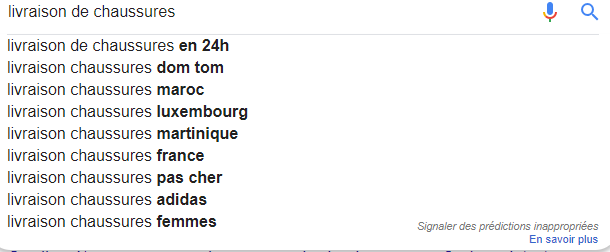Keyword Research: A How-To Guide for Beginners
Keyword research is an integral part of Search Engine Optimization. It is almost impossible to talk about content marketing without mentioning keywords. Over the years Google has changed its algorithm several times to accommodate the ever-changing market. As a result, content marketers have had to adjust to these alterations in order to keep their websites ranking well. However, one thing has remained constant for marketers looking to optimize their content: keyword research.

What is keyword research in SEO?
The first question a beginner would ask here is exactly what is keyword research in SEO? The clue is the name itself. We can define it simply as the process of looking for exact key search terms that people type into search engines when searching for a specific topic. In other words, what your audience is actually looking for, ad-verbatim.
If you’re looking to grow your site’s audience and generate a high volume of impressions, you’re going to need to look into writing smarter content. The type of writing you need to do for a website is different to the kind of writing you would do for, say, academia or newspapers. We can’t claim to be the ultimate guide to keyword research, but we can help you learn the basics on how to research keywords for SEO. In this article, we will go into a few steps on how to research keywords and how this practice can be beneficial for your website.
3 Reasons why keyword research is so important
Other than link building and content marketing, keyword research is one of the most important factors in Search Engine Optimization. Here’s why:
- Marketing tip 101: know your audience. According to Internet World Stats, in June 2018, of the 7.6 billion people in the world, 4.2 billion of them use the internet. That’s a little over 55% of the entire world’s population that you could potentially be reaching. Keyword research helps you know exactly what your audience is looking for thus helping you better meet their needs. It also shows you how many of the 4+ billion Internet users are searching for these exact terms. The keywords you use (or don’t use) will affect the number of impressions and clicks or visits your website gets.
- It helps you rank well in search engines. The more specific keywords appear on a page, the better search engines are able to analyse what the page is about and therefore place your page under the correct searches. NB: avoid keyword cannibalization by using topic-specific keywords for each of your pages.
- Keyword research helps you identify popular niches in your market as you will come across related search terms in your research. You want to cover as much ground as possible in your market. Finding related keywords can help you tap further into existing markets as well as find ground in new markets
How is Keyword Research Done?
Keyword research in SEO is basically market research. In this section, you will find a step-by-step guide on how to research keywords. Note that optimizing your website takes a lot more than adding keywords to your site. But finding the best way to do keyword research can set you on the right path to getting your site to rank well.
Step 1: Think About What Topics are Important in your Field
The first thing you need to do before starting your keyword research is to think about what products and services your business has to offer. Think along the lines of what do people need you for and how can you best market these products/services online.
Best of all, How Can SEO Help You and Your Business?
(Hint: The answer to this will always be because SEO brings in traffic which in turn helps your revenue, no matter the purpose of your website.)
Step 2: Use Those Topics to Find Keywords
If you’re on this page, chances are you’re a beginner at SEO. So for the sake of helping you understand this better, we’ll use an example:
Let’s imagine you’re a shoe salesperson. In the first step, you should have identified that your business, perhaps, sells shoes, does shoe delivery, shoe repairs and so forth. Now, you need to:
- Think up, by yourself, what key phrases would likely be typed into search engines by your target audience.
- You’ll need to create umbrella groups for these keywords. For example, shoes would be the main keyword while shoe delivery and shoe repairs would each be a sub group on their own where you could add researched keywords.
Step 3: Use a Keyword Research Tool to Conduct your Research
If you’re starting out, it’s best to try this out on a free keyword research tool until you get the hang of this concept. There are several tools you can use for this that we will discuss later.
To do the research, use the key terms you identified in step 2 (eg. shoe repairs), and they should direct you to keywords you can use.
Here’s an example from SEMRush, a good SEO keyword research tool that gives a free 2 week trial period:


Step 4: Conduct Related Keywords Research
This step is very important for finding long tail keywords. The best way to do this is to do Google keyword research. Simply put, type the highest-ranking keywords you found Google is the most widely used search engine today so there’s no better place to find what terms people are looking for than in Google’s related searches.
Continuing with our example, if your business is shoe sales you need to think about what kinds of shoes you’re selling. Do you specialize in men’s shoes? Women’s shoes? Luxury brand shoes? Pick the best fits (pun intended) and squeeze them strategically into your content. Here are the results returned:

Step 5: Competitor Keyword Research: How Are Your Competitor’s Using Keywords?
Understanding what keywords your main competitors are using to rank is a great way to evaluate what keywords you should be using. Remember to always stick to your site’s purpose. Just because a competitor is doing something, doesn’t mean you HAVE to do it to or you could wind up ranking for the wrong keywords.

A quick Google search of “Shoe Repairs” turned up a few results. After picking one of the first page competitors, I used the CTRL + F function to search the top competitor’s page and it showed that they used the highest ranking keyword 15 times. This can also help you analyse their keyword placement.
Long Tail Keyword Research and why it is important
Long tail keywords are the phrases that come up in your keyword research that have 3 or more words. As mentioned earlier, Google related searches are the best way to conduct related keyword research. It’s also where you’ll most likely find long tail keywords.
This is a good way to find what users are typing into the search engines and incorporate it into your content. Here’s an example on shoe delivery:

Note how the main keyword brings up several other keywords. These are the longtail keywords that people are searching for.
At the bottom of the search page, you will find all the related search terms that you can also include in your content:

Keyword Research Tools
As mentioned before, there are quite a number of tools available on the internet that you can either access directly on you navigator or download the software. Below are just 5 of them:
- Google Ad Words: Keyword Planner
This is probably the best free keyword research tool you can possibly use to your advantage. If you think about it, what better place to search for keywords than from the source itself? All you have to do is enter your keywords in the search box and voila! The service is free but there are features you’ll need to pay for. For example, you can run paid ad campaigns for your website.
- Google Correlate
Good for searching synonyms of key phrases. It also gives you the option to exclude “exact match” phrases so as to allow only synonym searches. This service is free.
- SEMRush
Allows keyword searching and their volumes. Also allows for location adjustments and competitor domain analysis. It shows you keywords your competitor already ranks for. This is probably the best paid keyword research tool you can get. It also allows a free trial period of 2 weeks.
- KWFinder
An intuitive tool that not only shows you the best keywords to use, but also tells you how difficult it is to rank for a specific keyword. It gives you competitor analysis according to site authority. You can access it for two free SERP searches, but you’ll need to pay to continue using it.
- Ubersuggest
Here it is; the best free keyword research tool you could possibly use. It’s perfect for beginners as it presents a simple interface that’s easy to understand. All you need to do is type in the keyword you’re targeting; adjust for location and it will give you the best keywords for your term in order of their search volume. Not only that, but you can also type in your competitors’ domains and get a full assessment on their website.


